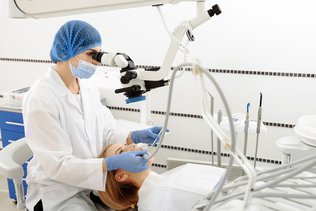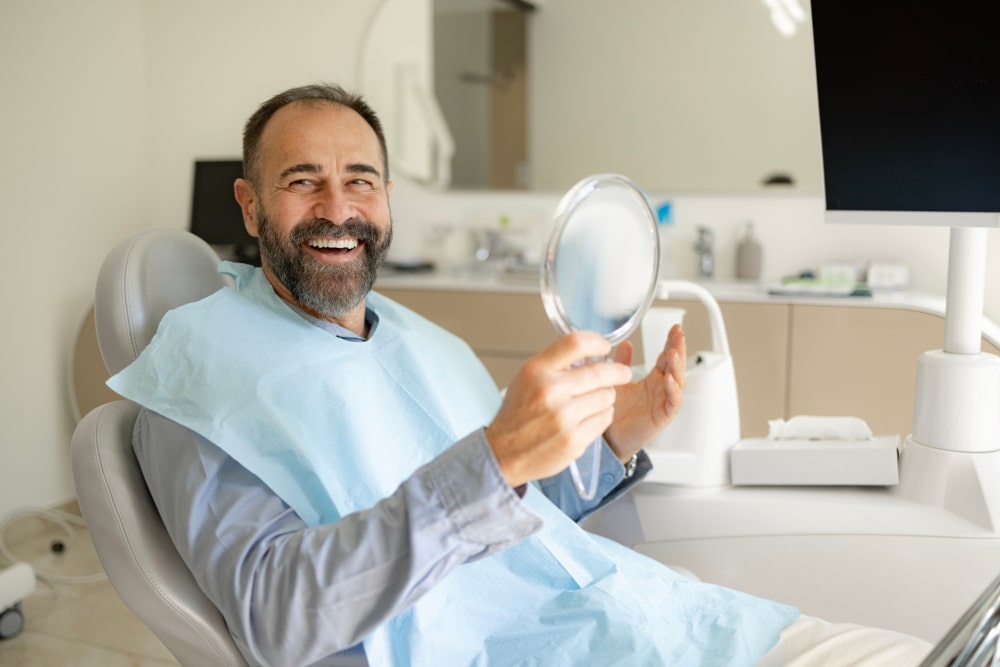
Is Dental Surgery Dangerous?
Your dentist has recommended that you undergo some type of dental surgery. The word surgery makes you feel a little uneasy. What are the odds that something could happen during the procedure? Before you let your imagination get out of control, take the time to learn a little more about dental surgery in general and the procedure you are about to have in particular.
An Overview of Dental Surgical Procedures
What are the types of dental surgery? There are a number of procedures that are categorized based on the nature of the condition you need corrected. Most of them will fall under the headings of orthodontics or prosthodontics. Respectively, these are about replacing teeth that are missing or repairing damage to your teeth. Many of these procedures will also do quite a bit to improve the appearance of your smile.
For example, you may require extractions to remove teeth that cannot be repaired. That will call for looking into options like bridges, dentures, or implants. At other times, it may be possible to save the tooth with the use of fillings, crowns, and veneers. Once the work is done, the underlying problem is resolved and your teeth will look nicer.
There are also classes of procedures designed to rid the teeth and gums of inflammation and infection. You will also find that the dental surgeon can use reconstructive methods when your teeth are damaged in some type of accident. Depending on the condition of your teeth, the surgeon may employ a series of procedures that includes two or more categories of dental surgery.

But What About Risks?
Even the simplest forms of dental surgery do carry some degree of risk. The good news is that the methods used for dental surgery in Mississauga, Ontario today are safer than at any time in the past. Between the technology used, the newer treatment methods, and the superior support that comes before, during, and after a procedure, the risk is certainly minimal.
Even as the dental team ensures that all the details for the procedure are confirmed before the surgery begins, there are things you can do to help minimize risk. The main thing is to be honest about any type of health issues you deal with at present. That includes short-term health issues as well as chronic conditions. By knowing about these, the surgical team can take them into account and ensure your condition is properly monitored during and after the procedure.
You also want to provide full disclosure about any type of medications or supplements that you take. From prescription medicines to herbs, it’s important to know how they could impact the ability of your blood to clot and if any of them have sedative effects. By knowing about these in advance, the surgical team can provide advice on when to stop taking them and when you can safely resume using those products after the surgery. This one simple step on your part will go a long way toward reducing risk during and after your dental surgery.
What If I Don’t Remember to Share This Information With the Surgeon?
There is a chance that nothing out of the ordinary would happen. That’s true if the medications or over the counter products you take do not thin the blood and do not produce any type of sedative effect. Even so, you do run a greater risk of encountering some sort of complication by not sharing information about your general health.
So is dental surgery dangerous? It’s no more dangerous than any other type of medical procedure. In most cases, you will run a greater risk of having serious health problems by choosing to not have the dental work done. Problems with the teeth and gums can pave the way for all sorts of other medical issues to develop, including cardiovascular issues.
Instead of seeing the dental surgery as potentially dangerous, view it as a way to minimize the possible of having other health problems in the years to come. Be frank about your medical history and tell all when it comes to what you are doing to manage your health. That will make it all the easier to enjoy the benefits from the dental surgery and enjoy a recuperative period that is not slowed by complications.

Understanding Factors That Affect the Cost of Dental Surgery
While you are primarily concerned about possible risks, it’s not unusual for concerns about dental surgery cost to come to mind. How much does it cost for dental surgery? A lot depends on the type of procedure or procedures you will undergo. If you have dental insurance, your provider can give you an idea of how much the surgery will cost, the amount your policy will cover, and what you will end up paying out of pocket.
If you don’t have the cash to cover your share or you don’t have insurance at all, it’s possible to secure medical loans that help to take care of the dental surgery cost. You can repay the loan using a series of installments. The lender makes sure the dental clinic receives the funds and you will find that the right type of medical loan will come with competitive interest rates and other terms.
Remember that your dental professional wants to help keep your teeth and gums as healthy as possible. When some form of dental surgery is needed, expect the dentist to go over the process in detail. You will have the opportunity to ask questions about each procedure included in the oral surgery procedures list that the professional outlines. This will help you know what to expect in terms of recovering from the procedures and what sort of benefits you will enjoy once all the work is completed.
Never delay any type of dental surgery if possible. Doing so only allows the underlying problem more time to worsen. What may start out as a simple procedure could become more complex if you wait for even a few months. Trust your dental professional and arrange to undergo the procedure as quickly as possible. In the long run, you’ll be happy that you did.

